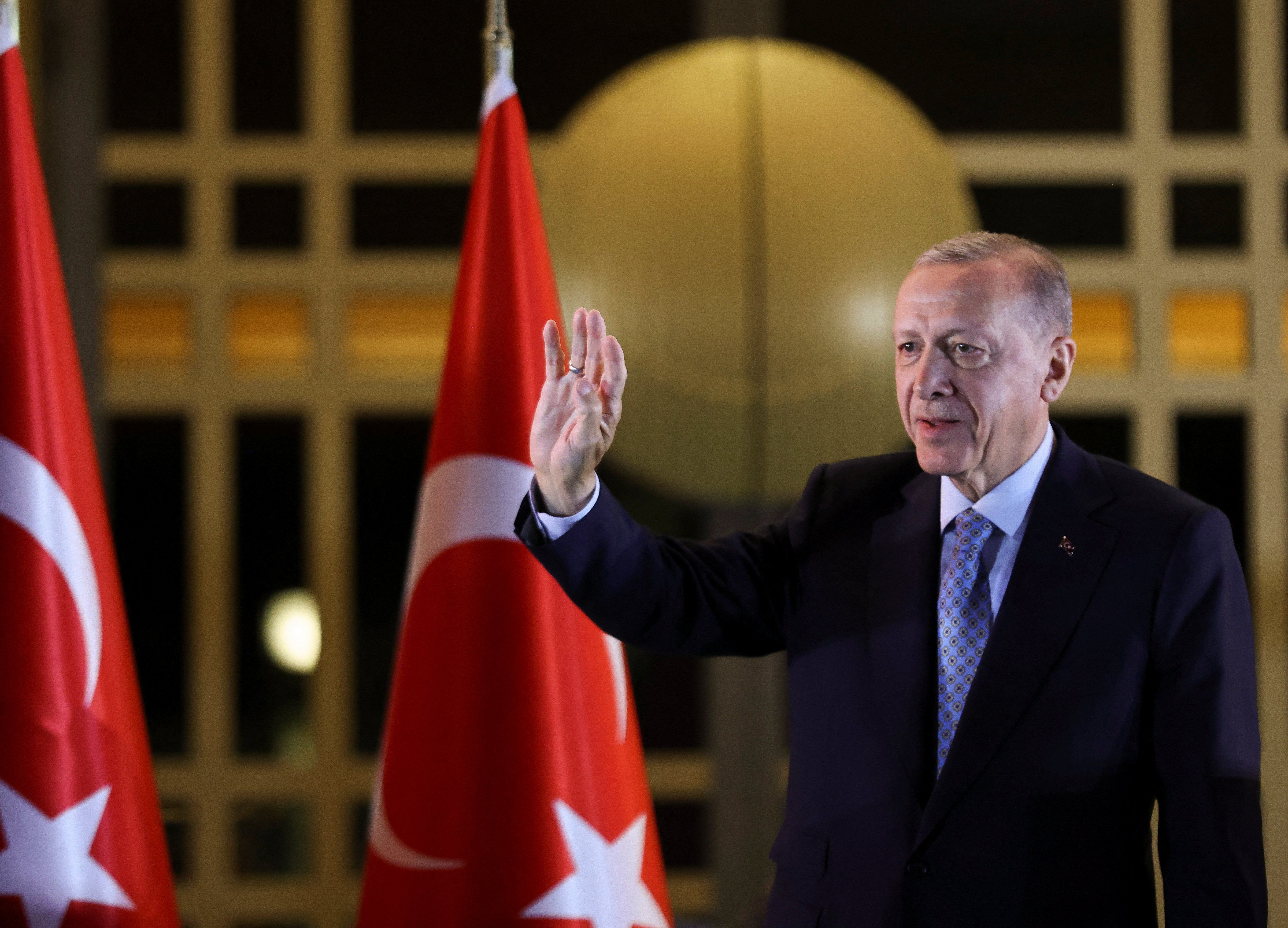Turkey's President Recep Tayyip Erdogan won Sunday's presidential runoff election, beating opposition leader Kemal Kilicdaroglu by a not-too-shabby 4 percentage points in a deeply polarized country. It’s a big victory for Erdogan, who ahead of the first round many thought would finally lose — yet eventually defying the polls to advance, win another term, and enter his third decade in power.
For the next five years, Erdogan will be "politically unencumbered" as his party also won a majority in parliament, Eurasia Group senior analyst Emre Peker explains in this Twitter thread. That will likely mean the Turkish leader will double down on some of his most divisive policies to please his base, including what to do with Syrian refugees.
Things are not looking good for the economy. The lira crashed after Erdogan's runoff victory, as investors fear the president will try to get the country out of its economic crisis with more of his unorthodox policies known as Erdonomics. The same goes for the state of Turkish democracy, while on foreign policy expect Erdogan to continue his delicate balancing act between the West and, well, the enemies of the West.
In Peker's words: "Quite an explosive mix — politically for Erdogan, and personally for all Turkey."
